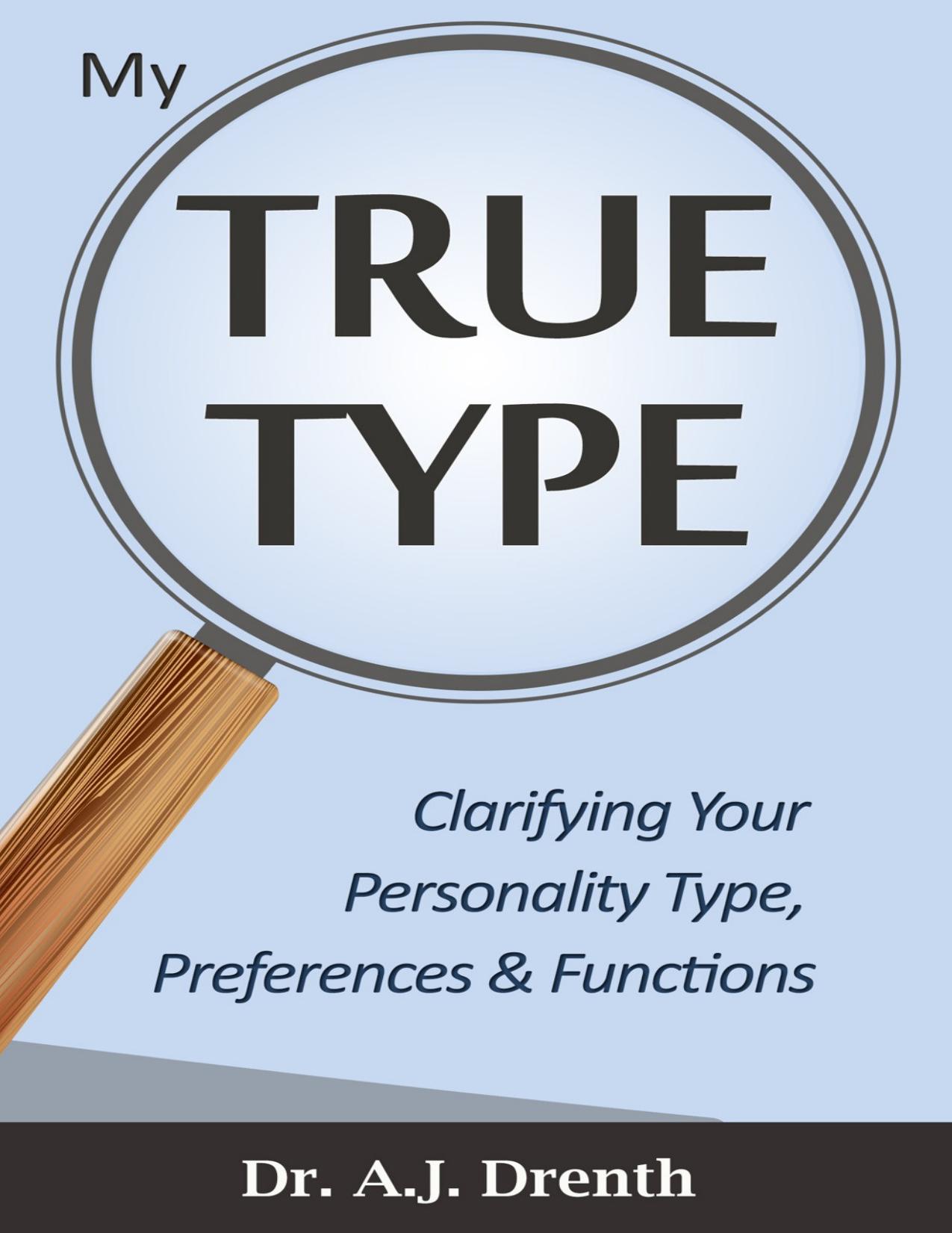My True Type by A.J. Drenth

Author:A.J. Drenth [Drenth, A.J.]
Language: eng
Format: epub, pdf
Published: 2014-07-03T04:00:00+00:00
10. Introverted Sensing (Si)
Primary roles: To retain, condense, and recollect information; to consult past experiences, routines, and traditions; to perceive inner bodily sensations
Most prominent in: ISTJs & ISFJs; also prominent in ESTJs & ESFJs
Associated with: Routines, habits, valuing and preserving “the tried and true,” material conservativism, high regard for traditions and authority
Famous ISJs: Dick Cheney, Martin Luther, Mother Theresa, George H.W. Bush
When thinking about sensing, we typically think in terms of the five senses. But the five senses really pertain more to Se than Si. While Se constantly seeks out new opportunities for stimulating the senses, Si is more interested in the routine and familiar. It is a careful and conservative function, drawing on existing resources, beliefs, or practices in lieu of exploring or developing new ones.
Most people are familiar with the notion of “learning through experience.” This can be associated with Si, which guides and informs our behavior by consulting past experiences. To be sure, all types rely on memory and past experience to some extent, but for Si types (i.e., SJs) the past is granted higher priority and greater authority.
SJ clergy and news pundits, for instance, are constantly making arguments from history, viewing the past as the ultimate guide to, and authority for, present action. An Si minister may emphasize the deep importance of preserving and continuing in the traditions of the church, while SJ news pundits reference iconic individuals, documents, or periods of history (e.g., the “founding fathers,” the Constitution, Lincoln, etc.) they feel should be emulated. Non-SJ types, by contrast, may wonder why we should grant the past such a high degree of authority. How, after all, are we to determine which historical authorities are to be followed and emulated? How do we know whether to believe the Bible or the Koran, Jesus or Mohammed? Is the decision merely arbitrary or should other evaluative criteria be admitted?
SJs are famous for embracing and defending “the tried and true.” They are reluctant to change things they see as having a proven track record. “If it ain’t broke, don’t fix it!” is another Si mantra.
Growing attached to the routine, familiar, and expected, repetition seems to play a prominent role in Si. The more times SJs repeat something—eat a certain meal, listen to a specific song, etc.—the more likeable (or tolerable) it becomes. It was probably an SJ who, in noticing how his tastes shifted with repeated exposures, coined the phrase “it will grow on me.” In many cases, if you can get an SJ to repeatedly try something, there’s a decent chance they will eventually come to enjoy or at least better tolerate it.
In keeping with Si’s appetite for consistency, SJs tend to fall into “daily routines,” including routinized meal times and meal choices. My ISTJ mother is about as extreme as one can get in this respect. Despite having no history of food allergies or gastrointestinal problems, she dislikes most foods, including most fruits and vegetables. She eats nearly the same thing every day, even to the point of counting the number of tortilla chips that will flank her ham sandwich.
Download
This site does not store any files on its server. We only index and link to content provided by other sites. Please contact the content providers to delete copyright contents if any and email us, we'll remove relevant links or contents immediately.
Rewire Your Anxious Brain by Catherine M. Pittman(18630)
Talking to Strangers by Malcolm Gladwell(13339)
The Art of Thinking Clearly by Rolf Dobelli(10406)
Mindhunter: Inside the FBI's Elite Serial Crime Unit by John E. Douglas & Mark Olshaker(9310)
Becoming Supernatural by Dr. Joe Dispenza(8194)
Change Your Questions, Change Your Life by Marilee Adams(7730)
Nudge - Improving Decisions about Health, Wealth, and Happiness by Thaler Sunstein(7687)
The Road Less Traveled by M. Scott Peck(7581)
The Lost Art of Listening by Michael P. Nichols(7485)
Mastermind: How to Think Like Sherlock Holmes by Maria Konnikova(7312)
Enlightenment Now: The Case for Reason, Science, Humanism, and Progress by Steven Pinker(7303)
Win Bigly by Scott Adams(7181)
The Way of Zen by Alan W. Watts(6589)
Daring Greatly by Brene Brown(6500)
Big Magic: Creative Living Beyond Fear by Elizabeth Gilbert(5739)
Grit by Angela Duckworth(5592)
Ego Is the Enemy by Ryan Holiday(5406)
Men In Love by Nancy Friday(5225)
The Laws of Human Nature by Robert Greene(5153)
